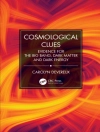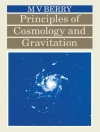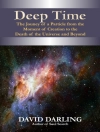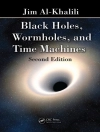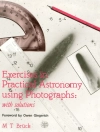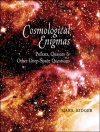This book contains papers from a conference held to celebrate the 70th birthday of one of the world’s foremost astronomical historians, Professor F. Richard Stephenson, the latest recipient of the American Astronomical Society’s highest award for research in astronomical history, the Le Roy Doggett Prize. Reflecting Professor Stephenson’s extensive research portfolio, this book brings together under one cover papers on four different areas of scholarship: applied historical astronomy (which Stephenson founded); Islamic astronomy; Oriental astronomy and amateur astronomy. These papers are penned by astronomers from Canada, China, England, France, Georgia, Iran, Japan, Lebanon, the Netherlands, Portugal, Thailand and the USA. Its diverse coverage represents a wide cross-section of the history of astronomy community. Under discussion are ways in which recent research using historical data has provided new insights into auroral and solar activity, supernovae and changes in the rotation rateof the Earth. It also presents readers with results of recent research on leading historical figures in Islamic and Oriental astronomy, and aspects of eighteenth and nineteenth century Australian, British, German and Portuguese amateur astronomy, including the fascinating ‘amateur-turned-professional syndrome’.
Tabella dei contenuti
Foreword.- Participants.- The Authors.- Conference Program.- Conference Photograph.- Part I: Applied Historical Astronomy.- The Length of the Day: Richard Stephenson’s Contribution.- Determination of ΔT and Lunar Tidal Acceleration from Ancient Eclipses and Occultations.- The Legendary Fourth-Century Total Solar Eclipse in Georgia: Fact or Fantasy.- The Eclipse of Theon and Earth’s Rotation.- A Homage to Richard Stephenson: French Observations of the Sun at the Time of the ‘Sun King’.- Evidence for Recurrent Auroral Activity in the Twelfth and Seventeenth Centuries.- Historical Supernova Explosions in our Galaxy and their Remnants.- Part II: Islamic and Oriental Astronomy.- Historical Astronomy of the Caucasus: Sources from Georgia and Armenia.- Annular Eclipses and Considerations about Solar and Lunar Angular Diameters in Medieval Astronomy.- The Investigation of Stars, Star Clusters and Nebulae in Άbd al-Raḥmān al-Ṣūfī’s Book of the Fixed Stars.- Άbd al-Raḥmān al-Ṣūfī’s 3-Step Magnitude System.- A Thorough Collation of Astronomical Records in the Twenty-five Histories of China.- Some Statistical Aspects of Historical Chinese Astronomical Records.- Part III: Amateur Astronomy.- The Clash between William Herschel and the Great German ‘Amateur’ Astronomer Johann Schroeter.- Henry Beighton’s Eclipse Chart.- Portuguese Amateur Astronomy (1850-1910).- The Amateur-Turned-Professional Syndrome: Two Australian Case Studies.- Index.
Circa l’autore
Wayne Orchiston was born in Auckland (New Zealand) in 1943, and has B.A. (Honors) and Ph.D. degrees from the University of Sydney. Formerly an Associate Professor of Astronomy at James Cook University, Townsville, Australia, he is currently a researcher at the National Astronomical Research Institute of Thailand and an Adjunct Professor of Astronomy at the University of Southern Queensland in Toowoomba (where he supervises a number of off-campus part-time Ph.D. history of astronomy students). A former Secretary of IAU Commission 41 (History of Astronomy), Dr. Orchiston is the founder and former Chair of the IAU Working Group on Historic Radio Astronomy and founder and current Chair of the IAU Working Group on Transits of Venus. In addition to Commission 41, he is a member of IAU Commissions 40 (Radio Astronomy) and 46 (Astronomy Education and Development). He is the founding Editor of the Journal of Astronomical History and Heritage. Dr. Orchiston’s research interests lie mainly inastronomical history, astronomical education and meteoritics and he has more than 350 publications, including the following books: Nautical Astronomy in New Zealand. The Voyages of James Cook (1998), Astronomical Instruments and Archives From the Asia-Pacific Region (2004, co-edited by Richard Stephenson, Nha Il-Seong and Suzanne Débarbat), The New Astronomy: Opening the Electromagnetic Window and Expanding our View of Planet Earth (2005, editor), Proceedings of the 5th International Conference on Oriental Astronomy (2006, co-edited by Kwan-Yu Chen, Boonrucksar Soonthornthum and Richard Strom), Highlighting the History of Astronomy in the Asia-Pacific Region. Proceedings of the ICOA-6 Conference (2011, co-edited by Tsuko Nakamura and Richard Strom) and Mapping the Oriental Sky. Proceedings of the Seventh International Conference on Oriental Astronomy (ICOA-7) (2011, co-edited by Tsuko Nakamura, Mitsuru Sôma and Richard Strom).
David A. Green was born in Kingston-upon-Hull (England) in 1959. He has B.A. and Ph.D. degrees from the University of Cambridge. Dr. Green is currently a Senior Lecturer in the Cavendish Laboratory, the Physics Department of the University of Cambridge. His Ph.D. studies started with a measurement of the distance to 3C58, the remnant of the ‘historical’ galactic supernova of AD 1181. He has continued to study supernova remnants, including the production (since 1984) of a widely-used catalogue of galactic supernova remnants and the identification of the youngest known galactic remnant, G1.9+0.3, which is at most only 150 years old. Dr. Green’s research interests also cover a wide range of other radio astronomical topics, and in recent years he has used the Giant Metrewave Radio Telescope (GMRT) in India to produce deep, wide-field low-frequency radio surveys. He has collaborated with Richard Stephenson on studies of the ‘historical’ supernovae seen in our Galaxy and their remnants and their co-authored book, Historical Supernovae and their Remnants, was published by Oxford University Press in 2002.
Richard Strom was born in New York City (USA) in 1944, and has a B.A. in physics from Tufts University (USA) and M.Sc. and Ph.D. degrees in radio astronomy from the University of Manchester (Jodrell Bank), UK. Until his retirement in 2009 he was Senior Research Astronomer at ASTRON (the Netherlands Institute for Radio Astronomy) in Dwingeloo and Adjunct Professor of Astronomy at the University of Amsterdam. Since 2010 Dr. Strom has held Chinese Academy of Sciences Visiting Professorships for Senior International Scientists and has been a Visiting Professor of Physics at the National University of Singapore. He is a Fellow of the Institute of Physics, Singapore. For some years he also was an Adjunct Professor in the Centre for Astronomy at James Cook University, Townsville (Australia). Dr. Strom is a past Secretary and member of the Organising Committee of IAU Commission 40 (Radio Astronomy) and is also a member of Commissions 28 (Galaxies), 34 (Interstellar Matter) and 41 (History of Astronomy) and of the IAU Working Group on Historic Radio Astronomy. He is an Associate Editor of the Journal of Astronomical History and Heritage. His research interests include supernova remnants, pulsars, large radio galaxies, radio polarimetry and interferometry, historical Chinese astronomical records and the history of radio astronomy in the Netherlands. He has numerous publications in a range of astronomical journals and history of astronomy books and co-edited: Proceedings of the 5th International Conference on Oriental Astronomy (2006, co-edited by Kwan-Yu Chen, Wayne Orchiston and Boonrucksar Soonthornthum), Highlighting the History of Astronomy in the Asia-Pacific Region. Proceedings of the ICOA-6 Conference (2011, co-edited by Wayne Orchiston and Tsuko Nakamura) and Mapping the Oriental Sky. Proceedings of the Seventh International Conference on Oriental Astronomy (ICOA-7) (2011, co-edited by Tsuko Nakamura, Wayne Orchiston and Mitsuru Sôma).


